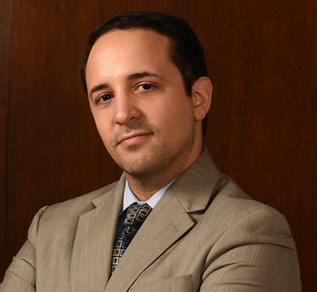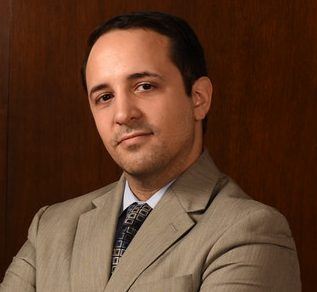Every once in a while, we’ll chat with an alum about what they do and how they got there. Recently, we caught up with Alexander Bush ’09, political science, a former Humanities Scholar who went on to law school at Pepperdine University in California. In addition to his full-time job as a personal injury attorney in Baltimore, Bush co-hosts Baltimore Barristers, a radio call-in show about legal issues.
 NAME: Alexander A. Bush
NAME: Alexander A. Bush
JOB TITLE/EMPLOYER: Co-host of the Baltimore Barristers radio show on CBS 1300 AM and Associate Attorney at Ingerman & Horwitz LLP
MAJOR/MINOR: major in History, minors in Political Science and French
GRAD YEAR: 2009
How did you decide to go to law school? What has the trajectory of your law career been, leading up to “Baltimore Barristers”?
I’ve learned the importance of career flexibility. My plan at Pepperdine Law was to do death-penalty defense. While I was very pleased that Maryland ended the death penalty soon after my graduation, it did keep me from getting a permanent position with the Public Defender’s Aggravated Homicide Division.
Fortunately, a diploma from UMBC, with its ever increasing reputation and rankings, helped me in the job market. Since then I [have] accepted a position at Ingerman & Horwitz, the state’s largest workers’ compensation firm, located in Baltimore City. I still get to handle criminal defense cases, but now I specialize in personal injury.
My co-host, Stephen Caramenico, and I came up with the idea for a radio show only about two months ago. We were fortunate to find an opening on 1300AM Tuesdays at 7pm. It has been a challenge balancing a heavy caseload and all the work that goes into the show, but I’m really enjoying it.
As a lawyer, what made you decide to do a radio show? Did you have any experience with the medium prior to breaking into that realm?
My current position as a litigation attorney gets me lots of trial experience, but I also wanted to find a way to incorporate politics and public policy into what I do. Since [my] co-host and I started the Baltimore Barristers in September, we’ve had two state delegates on to discuss proposed changes in the law, and a county council chairman to discuss the future of marijuana dispensaries.
It’s also a good career move given how competitive my field is. You can be the most skilled lawyer in the city, but if no one knows your name, you won’t get any clients.
I had no background in radio before this. It has been quite the learning experience. I’ve been lucky to have a great producer at CBS 1300 AM. I’ve yet to have any major technical slip-up or (my greatest fear) use any fine-inducing salty language on air, so I am feeling confident.
Since CBS 1300AM is mostly a sports talk station, my co-host and I have embraced our sports fan audience with stories on whether fantasy sports sites like FanDuel and DraftKings are gambling (the answer: maybe), Deflategate, and more.
What is it like to answer people’s legal questions?
The first step in doing it empathetically is understanding the vast difference between the public’s perception of the law and what the law actually says. Most of us have our own sense of basic fairness and just assume that’s how the law works. I think having a Master’s in Alternative Dispute Resolution [from Pepperdine’s nationally-recognized Straus Institute] helps me to build rapport and trust with someone even while I’m telling them something they really don’t want to hear about the law.
On the radio, I make it clear that there is no attorney-client relationship (and obviously no confidentiality) in on-air advice. I’ve had to tell callers not to give me any identifying information on the air, and then have spoken to them privately after the show.
What about your experience at UMBC stands out the most to you?
The Humanities Scholars program has had a great positive impact on my life. It provided me with a small, supportive community and was the impetus for a lot of great experiences like study abroad, funded research, and a living-learning community dorm. But it was more than just the program[.] [The] whole culture of UMBC worked for me. Being a nerd (in my case, a history and law nerd) is cool here.
I also had a number of great professors with whom I’ve been lucky to have lasting relationships, but especially Dr. George LaNoue, who taught my constitutional law courses and gave me a lot of great advice while applying to law schools. While I was at Pepperdine, Dr. LaNoue and I co-authored a paper on 1st Amendment issues with internal review boards, which we presented at a conference at Cambridge in the UK.
Knowing what you know now, what would you tell a brand new UMBC student?
There are a lot of opportunities to take advantage of, so start planning early. Give yourself time in the beginning to try new experiences, but once you’ve found what you like, go for it!
For me, it was a study abroad in Cameroon and France that I was able to tie into research in the UK, which then led to presenting my research at URCAD. That was a great experience, especially for an undergrad who wouldn’t usually have an opportunity like that.
You can listen to past Baltimore Barristers podcasts here.
Tags: Alexander Bush, Humanities Scholars, Political Science

